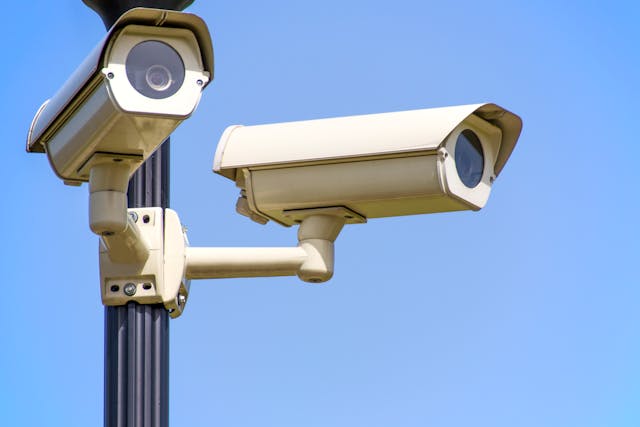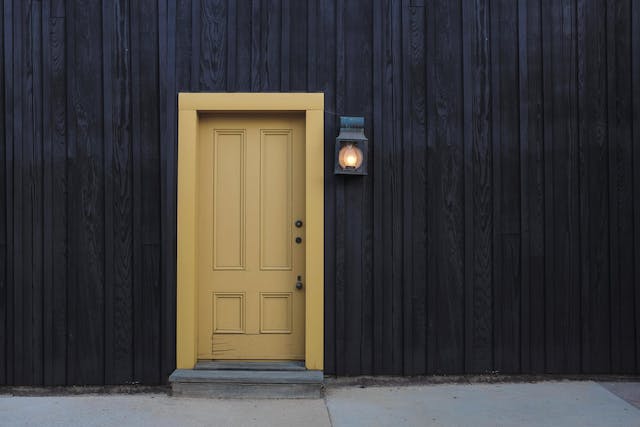Protecting Tenants Privacy Rights: All You Need To Know

Are you ever unsure about how much access you have to your rental property once a resident moves in? As a landlord, it’s natural to want to protect your investment, but it’s equally important to respect the legal boundaries when it comes to your residents’ privacy rights.
In this guide, we’ll walk you through everything you need to know about protecting your residents’ privacy while still maintaining control over your property. With insights tailored for landlords working with Evolve Real Estate & Property Management in Denver, you’ll feel more confident navigating your responsibilities and rights.
Understanding Tenant Privacy Laws
In Denver, landlords need to understand privacy laws to avoid crossing legal boundaries. These laws protect residents while allowing you to manage your property responsibly and within state guidelines:
- The Right to Quiet Enjoyment: Your residents are legally entitled to live peacefully without unnecessary disruptions. In Denver, this means no unannounced visits or interference with their daily use of the home.
- Notice Before Entry: Colorado law generally requires giving residents at least 24 hours’ notice before entering a unit. This notice allows you to maintain the property while respecting their personal space.
- Emergency Situations: In true emergencies like fires or flooding, you can enter the property without notice. Still, it’s good practice to document the reason and inform the resident as soon as possible.
- Security and Personal Information: Any personal data you collect from residents, such as IDs or financial records, must be stored securely. In Denver, mishandling this information can lead to serious legal issues.
- Surveillance and Monitoring: Surveillance cameras are allowed in public or shared areas, not inside units. Denver landlords must ensure these systems aren’t invasive and that residents are aware they exist.
- Respecting Tenant Privacy: Maintaining trust means setting clear boundaries. By respecting your residents’ privacy, you build a more professional relationship and reduce the risk of complaints or legal trouble.

Smart Privacy Practices Every Denver Landlord Should Know
Protecting your residents’ privacy isn't just about compliance, it’s about building lasting trust. Here are six simple, effective strategies to help you maintain privacy while managing your Denver rental smoothly.
1. Provide Written Notice Before Entry:
In Denver, landlords are generally required to give residents at least 24 hours’ written notice before entering a unit. This isn’t just a legal formality, it shows respect for your resident’s space and helps avoid misunderstandings.
Whether you’re scheduling a repair, conducting a walkthrough, or following up on a maintenance request, always send a written notice explaining the reason for entry and the expected time. Doing this consistently builds trust and keeps everyone on the same page, which is especially helpful when managing multiple properties.
2. Limit Visits to Essential Reasons Only:
Even with proper notice, frequent visits can start to feel intrusive. As a landlord, it’s important to enter only when necessary, like for scheduled maintenance, emergencies, or safety checks. In Denver, your residents expect a balance between access and privacy.
Avoid popping in without a valid reason, even if it’s well-intentioned. Keeping your visits limited to essential purposes creates a sense of professionalism and lets residents feel more at ease in their home.

3. Secure Personal Information:
Protecting your residents’ personal data is just as important as respecting their physical space. To ensure you comply with Colorado privacy laws, you’ll want to make sure any sensitive information, applications, IDs, lease agreements, or payment details, are stored securely.
Use password-protected systems or locked file storage, and limit access to only those who truly need it. Mishandling this information not only puts your residents at risk but can also damage your reputation and lead to legal trouble.
4. Avoid Installing Cameras in Private Spaces:
Surveillance can be a helpful safety measure, but there are clear limits. In Denver, it’s legal to place cameras in shared spaces like building entrances, parking areas, or hallways, but never inside individual units or private patios.
Installing a camera in a resident’s personal space, even with good intentions, is a major privacy violation and can lead to legal issues. A smart example would be placing a visible, well-marked camera near the building’s main entrance to deter trespassers from invading personal living areas.
5. Be Transparent About Property Access Policies:
Setting clear expectations from the start helps avoid confusion later. During lease signing, explain when and why you might need to access the unit, how much notice will be given, and how emergencies are handled.

In Denver, this kind of upfront communication not only supports your legal compliance but also shows professionalism. A great example would be including a short section in your lease titled “Landlord Access,” where you outline access hours, notice periods, and emergency entry protocols in plain language.
6. Respond Promptly to Privacy Concerns:
When a resident reaches out with a concern about their privacy, how you respond says a lot about your management style. Addressing these issues quickly builds trust and prevents minor worries from escalating into formal complaints.
In Denver’s competitive rental market, positive resident relationships matter. For instance, if a resident mentions discomfort with a maintenance worker entering their home without notice, follow up immediately, apologize, and ensure future visits are scheduled with proper notification.
7. Fostering Trust through Respectful Interactions:
Respecting tenant privacy is not just about rules, but creating a positive relationship with your residents. Being courteous, allowing space, and maintaining professional communication are key to strong landlord-resident bonds. In Denver, where residents cherish their privacy, these gestures make a difference.
For example, patiently waiting for a response to a message rather than repeatedly calling or visiting shows that you respect their time and boundaries. This trust enhances your relationship and reduces potential conflicts.
Bottom Line
Protecting resident privacy is a key part of being a responsible landlord, and getting it right can strengthen your rental business long-term. If you’re unsure about best practices or want to ensure full legal compliance, Evolve Real Estate & Property Management in Denver is here to help. Their experience with local laws and professional approach can simplify the process. Reach out today to discuss what privacy solutions make the most sense for your properties.
